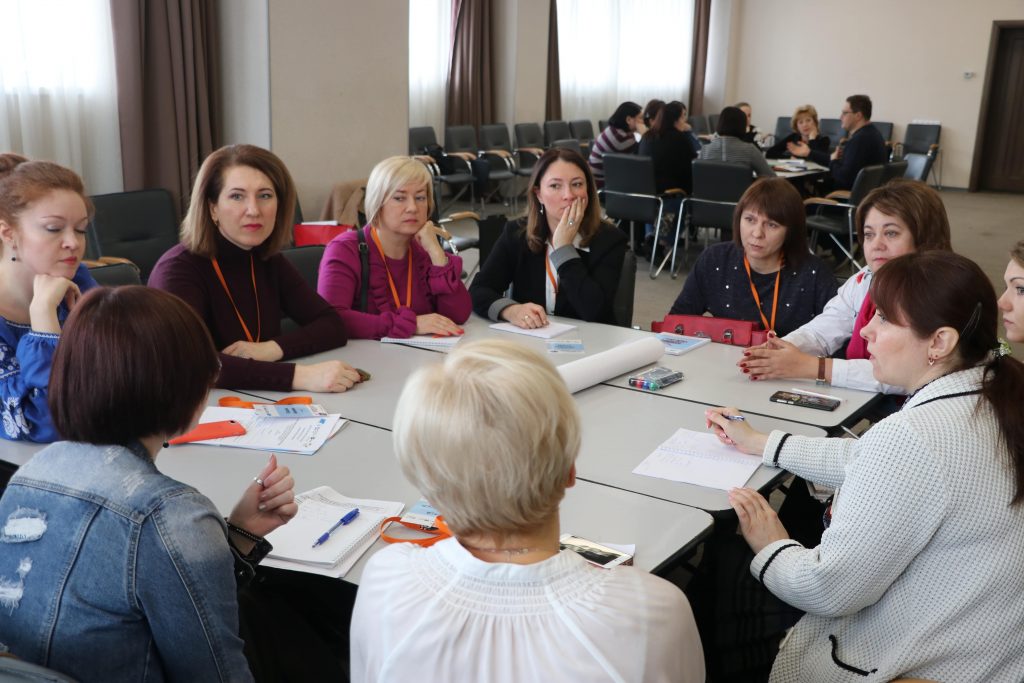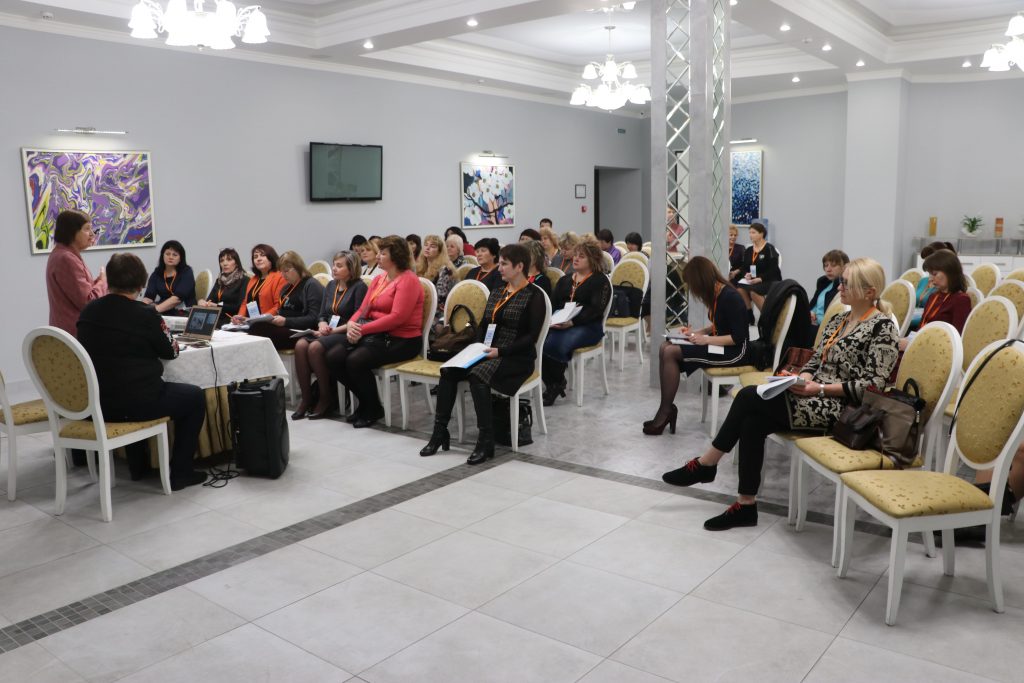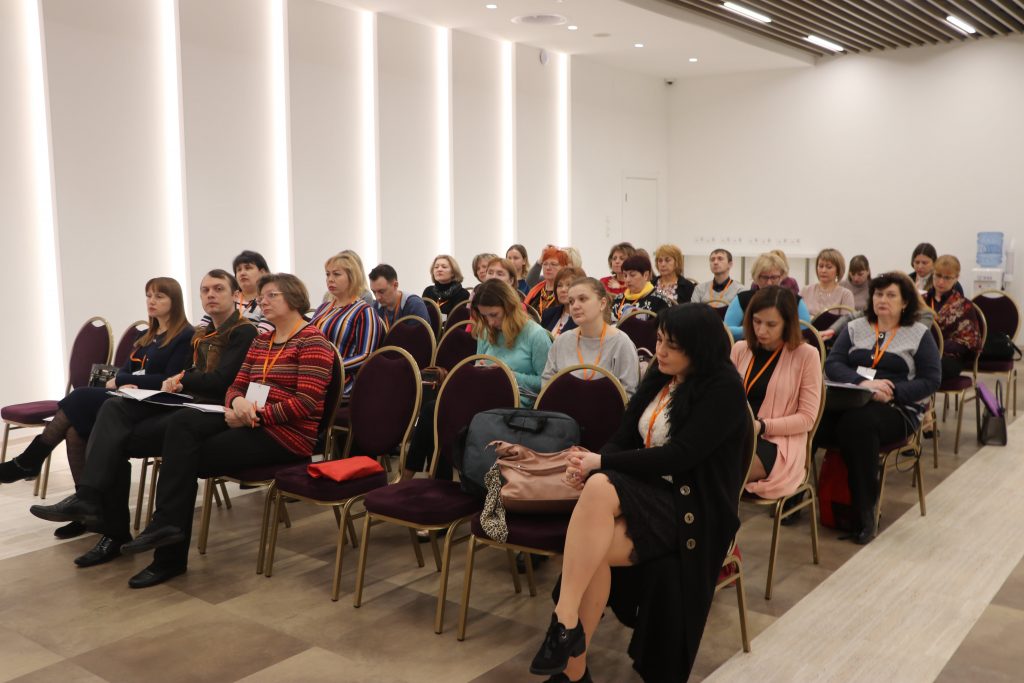
The Stanford economist and founder of RetinkX, Tony Seba, in his book “Clean Disruption” predicts that by 2030, 95% of people will not have a private car, and electric vehicles will bury the petroleum industry.
The researcher argues that a modern person, possessing the new information technologies, is already able to make such technological breakthrough. And though the "loss of great opportunities," as Ilf and Petrov said once, is really wide for a modern person, there also another one problem for them.
Will they survive in global technological and informational boom? Will they not turn out to be a "cog" or a "man of one button" in the hands of those who are capable to produce competently manipulating content and introduce required senses into consciousness?
These issues of interaction between the media environment and the human being were actively discussed by the participants of the Seventh International Scientific and Methodological Conference "The modern space of media literacy and prospects for its development", which took place in Kyiv on March 21-22, 2019.
The very logic of the conference agenda and speech topics focused not only on discussing current problems, but also on the development of certain forecasts and recommendations on how to develop personal media competence.
The conference was opened by the President of the Academy of Ukrainian Press, Prof. Valeriy Ivanov, who emphasized that humanity, for the moment, has accumulated a huge amount of information. The ability to use this knowledge and select it to solve practical problems is becoming more and more important. And that’s why critical thinking and media literacy become the leading vital competencies of a modern person.
"Given the situation," Valeriy Ivanov said, "that we are now only at the very beginning of the information age, because the amount of data will only increase in the future, the demands of the society on the media literacy education will grow ever more”. “And we are grateful to our partners, in particular, to DW Akademie for the help and support of our educational media initiatives,” – added Valeriy Ivanov.
Words of welcome were also expressed by Vadym Karandy, the deputy Minister of Education and Science of Ukraine, Marharyta Zakharchuk, the local coordinator of DW Akademie in Ukraine, and Annette Pölking, the Head of the Press Department of the Federal Republic of Germany.
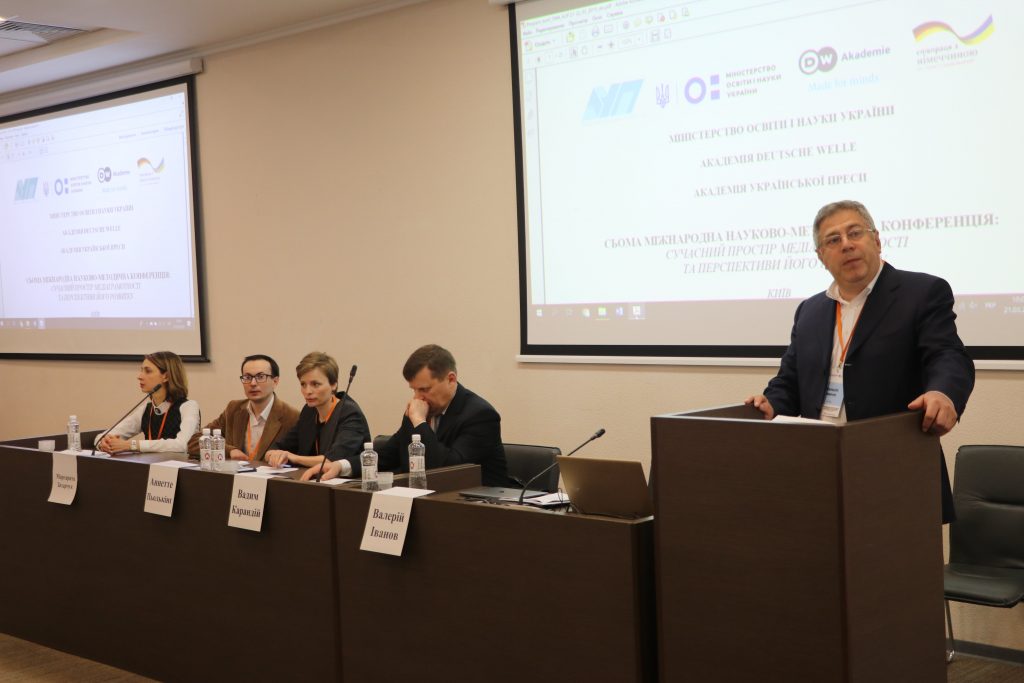
Given that the main audience of the conference were media educators and media literacy coaches, it would have been currently important for them to understand how Ukrainian mass media function today. What challenges do journalists face in order to stay true to their profession, to inform, not to propagandize.
The speakers of this panel discussion were well-known Ukrainian journalists – Serhiy Tomilenko, the chairman of the National Union of Journalists, Andriy Kulykov, the Honored Journalist of Ukraine, the chairman of the Journalistic Ethics Commission and NGO “Public Radio”, Oleksiy Matsuka, the founder and chief editor of the site “Donbas News” and “Public TV of Donbas” and Volodymyr Mostovyi, the founder of the Journalistic Ethics Commission and the newspaper "Dzerkalo Tyzhnya", were united in the general message: despite the large amount of information, a person, who is lack of it, feels like staying out of the air, so the task of the modern journalist is to provide people with this information.
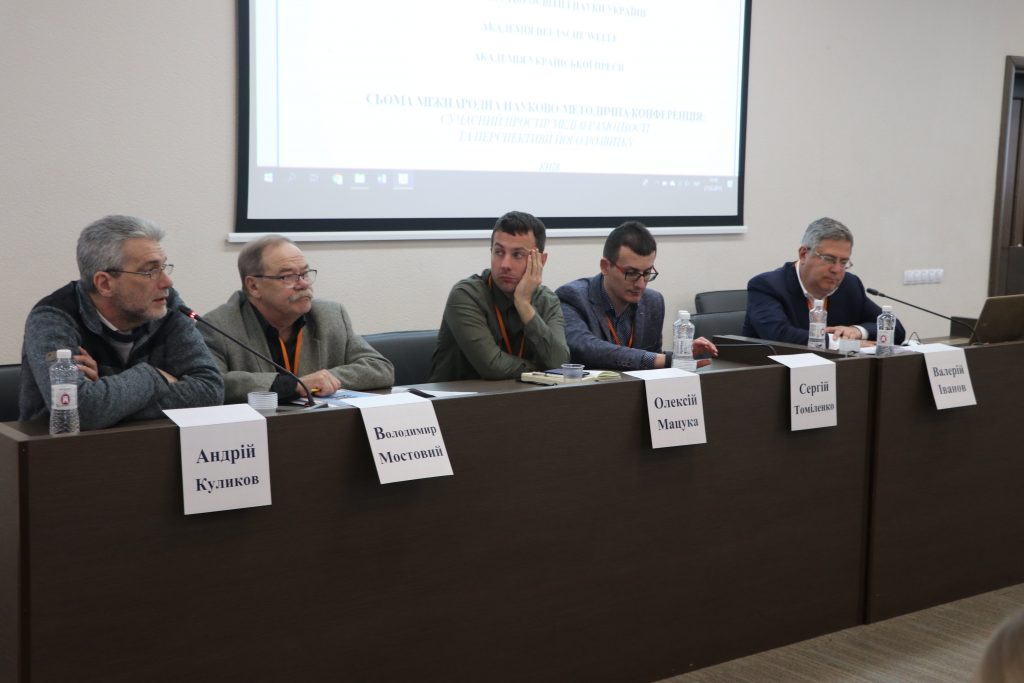
Speakers of the next panel discussion were Gillian McCormack, the Chief of Party of the Internews Network in Ukraine, and Mehri Drakman, the IREX Ukraine Country Representative. They discussed in detail how are things going with media literacy in Ukraine today and its further development trends.
Participants of the discussion underlined the fact that in our century of "smart" technologies, innovations, WI-FI, tablets, smartphones, laptops, social networks and everything else, each of us becomes a bit of a journalist. And it is very important to take responsibility for the information that we not only consume, but also produce or share ourselves. Because, as Mehri Drakman emphasized, 64% of people bring confusion to social networks, sharing unverified and fake messages. And only 1% out of 40% checks information before spreading it and sharing it online.
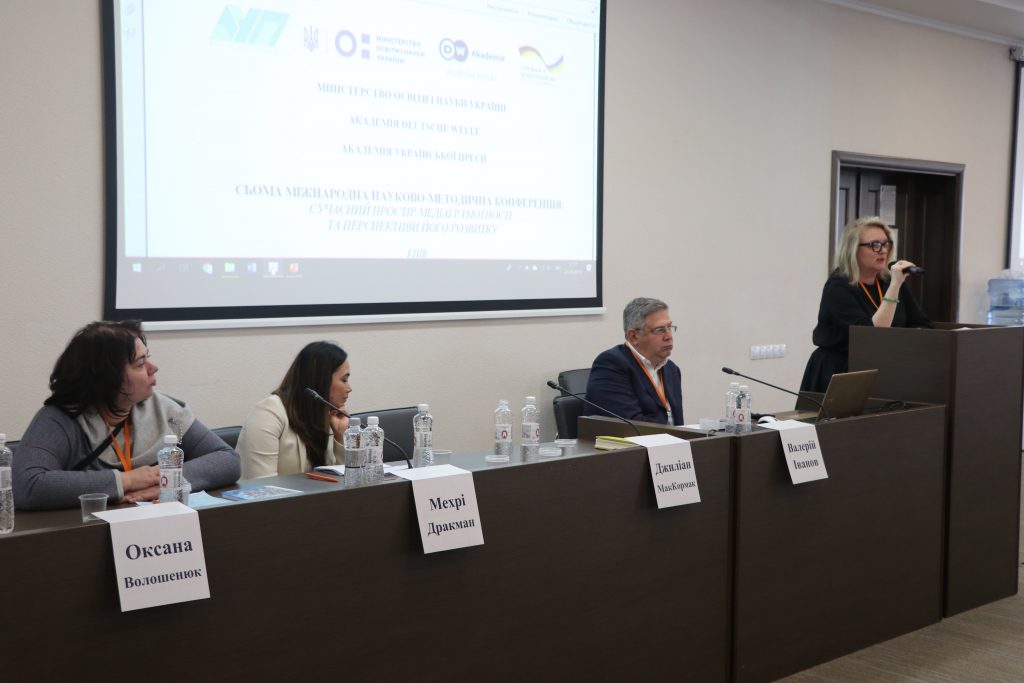
This conclusion is in line with the research by Vasyl Gatov, who writes: "In the next 5 years, viruses will be the most interesting way of positioning. The key role in the virus spreading will play not the participants of the chain but drivers – those who collect information and are considered to be the sources for other people. In other words, it does not matter if Lady Gaga tweeted you. It is important that someone who is connected to Lady Gaga tweeted you". (Http://www.aka-media.ru/inside/478/).
The content of this panel discussion was enriched by regional representatives and coordinators of educational programs on media literacy.
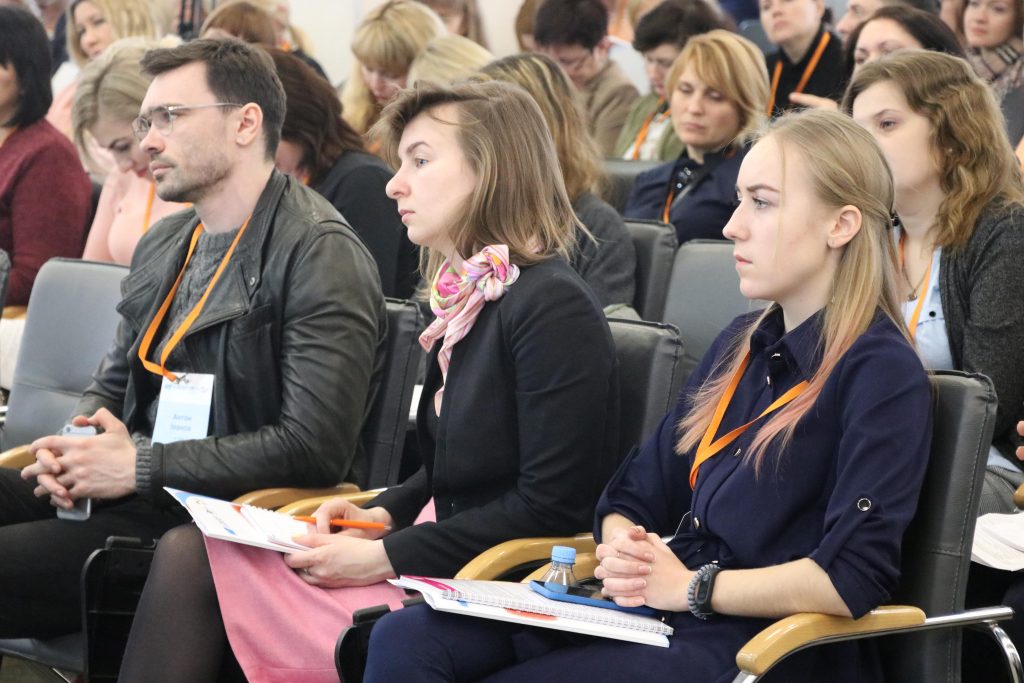
Particular participants’ interest was aroused by the presentation of the New Practical Guide to Media Literacy for Multiplicators, which was published by the Academy of Ukrainian Press with the support of DW Akademie. The presentation was held by Tetyana Ivanova, the Doctor of pedagogical sciences, Professor, managing partner of the Academy of Ukrainian Press, Olena Taranenko, the mediator, head of the journalism department of the Vasyl Stus National University of Donetsk, Andriy Yurychko, the mediator, lecturer at the Institute of Journalism of the Taras Shevchenko National University of Kyiv, Oleksandr Gorokhovsky, the journalist, founder of the fact-checking project “Bez Brekhni” ("Without a Lie").
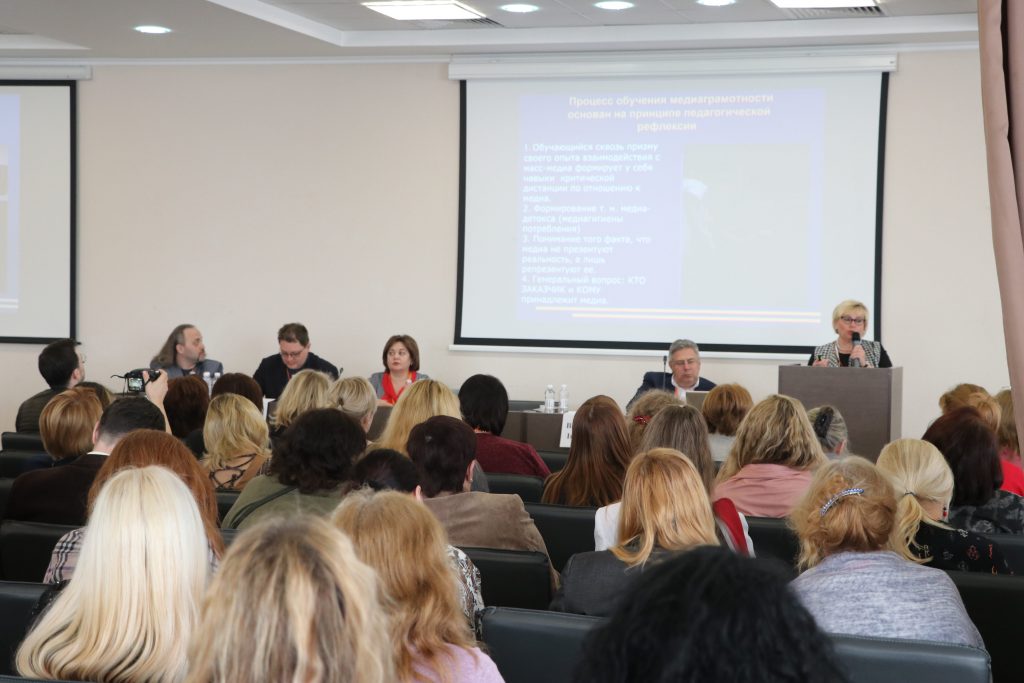
The authors talked about the purpose of this handbook, which can help coaches in their own trainings. "The handbook presents exercises and techniques that contribute to the development of specific skills in media literacy, as well as methods and tests that allow anyone, who increases their media literacy level, to diagnose and correct themselves", – stressed Tetyana Ivanova.
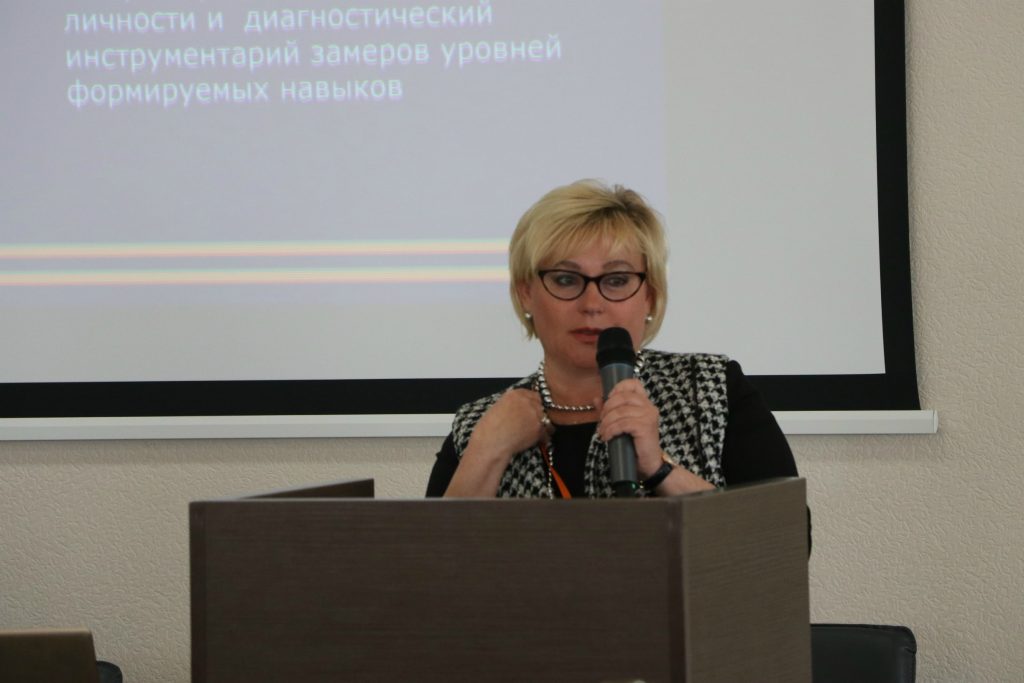
The first day of the conference was closed off by our foreign guests, journalists and media advisors - Tamara Mackievic, the deputy Chairman of the Belarusian School Society (Minsk, Republic of Belarus), Nouneh Sarkissian, the Executive Director of Media Initiatives Center in Armenia (Yerevan, Armenia), Gulnar Assanbayeva, the Regional Media Advisor of the Representative Office of Internews in Central Asia (Almaty, Kazakhstan), Galiya Ibraeva, the Professor of the Faculty of Journalism of the Al-Farabi National Kazakh University (Almaty, Kazakhstan), Lilia Turcan, the lecturer at the Faculty of Journalism of the Ion Creanga State Pedagogical University (Chisinau, Moldova), Aneta Gonta, the lecturer at the Communications and Information Theory Department of the Moldova State University (Chisinau, Moldova) and Sopio Chkhaidze, the Media analyst of the Media Development Fund (Tbilisi, Georgia).
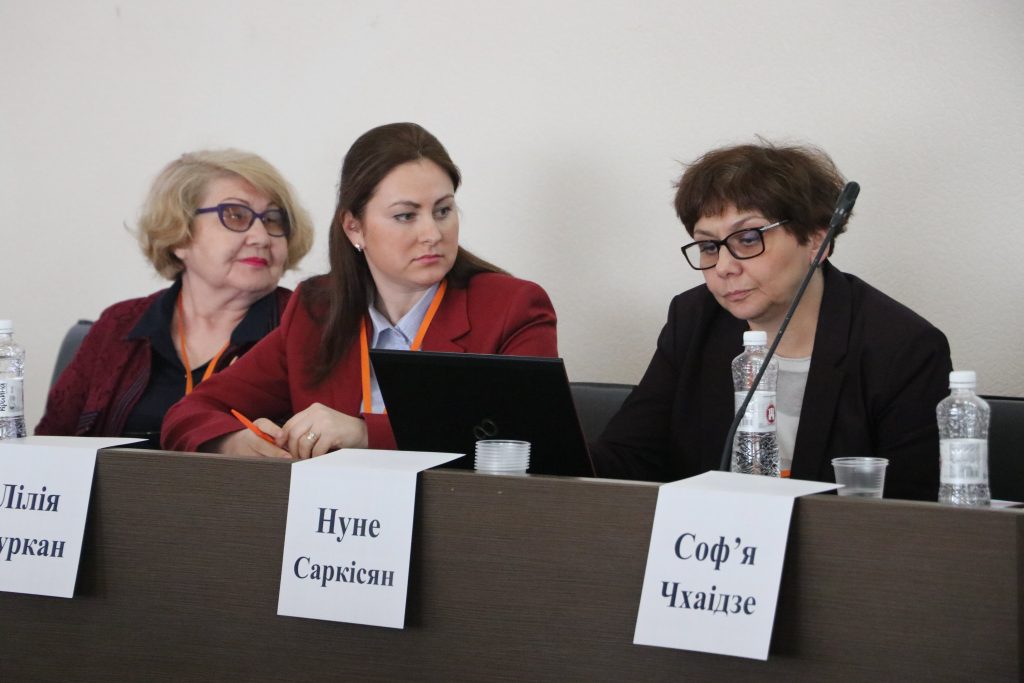
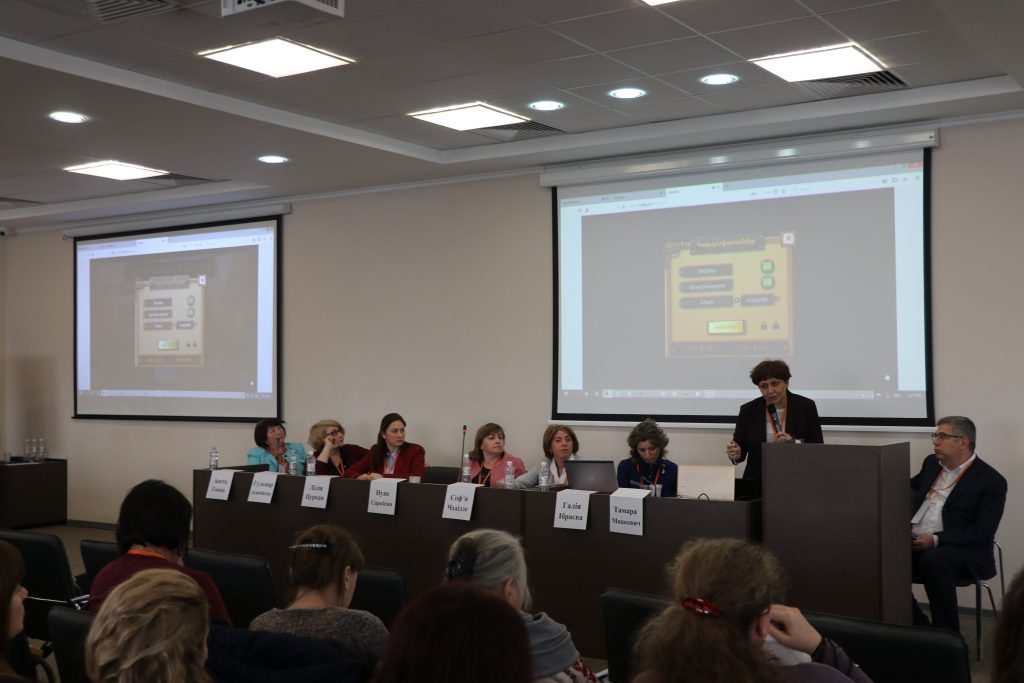
They highlighted that if the fight for freedom of information against censorship was the greatest battle of the 20th century, the struggle against the abuse of freedom of information, the use of information as weapons by authoritarian rulers and aggressive non-state actors has become actual in the 21st century. And given the fact that many of our foreign guests are representatives of post-Soviet contries in which the processes of democratization and civil society are uneven, the struggle for their information rights, the right to access objective information, the ability to obtain and analyze this information – these are the main competencies of citizens from all post-Soviet countries, which still experience the influence of propaganda and manipulation.
However, in order to resist such violations, we, representatives of all democratic forces and communities of media literate people, should try to follow the old Roman rule: Do What You Must, Come What May.
Conference materials can be downloaded from the link below:
https://drive.google.com/drive/u/1/folders/1Q2bZ2vrYqN102zhi4gjzuYX7kFNdQ1Ew
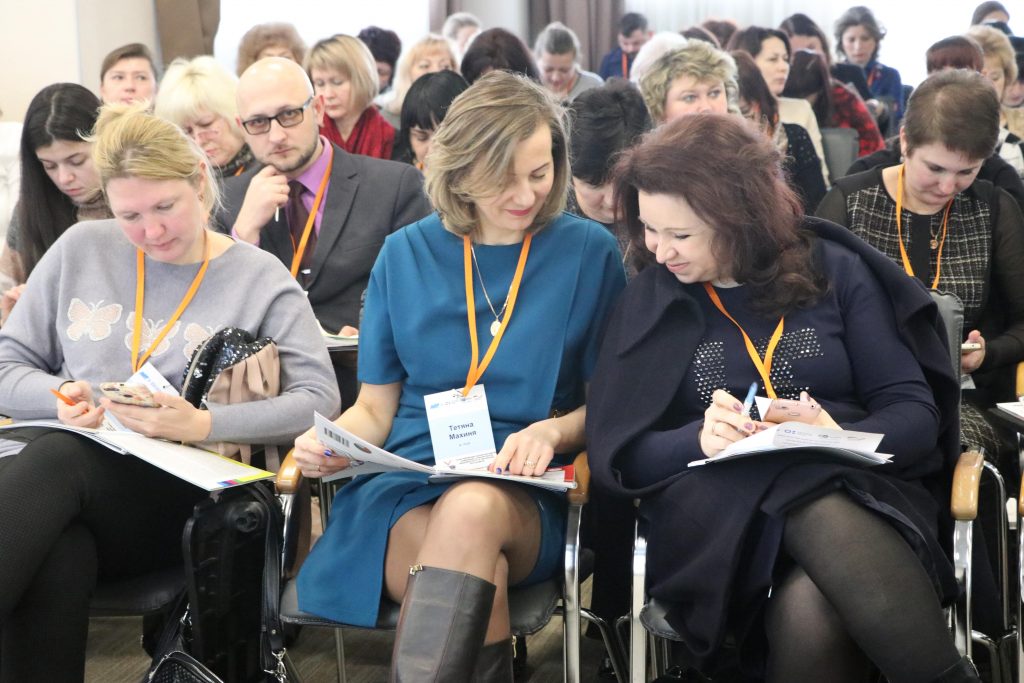
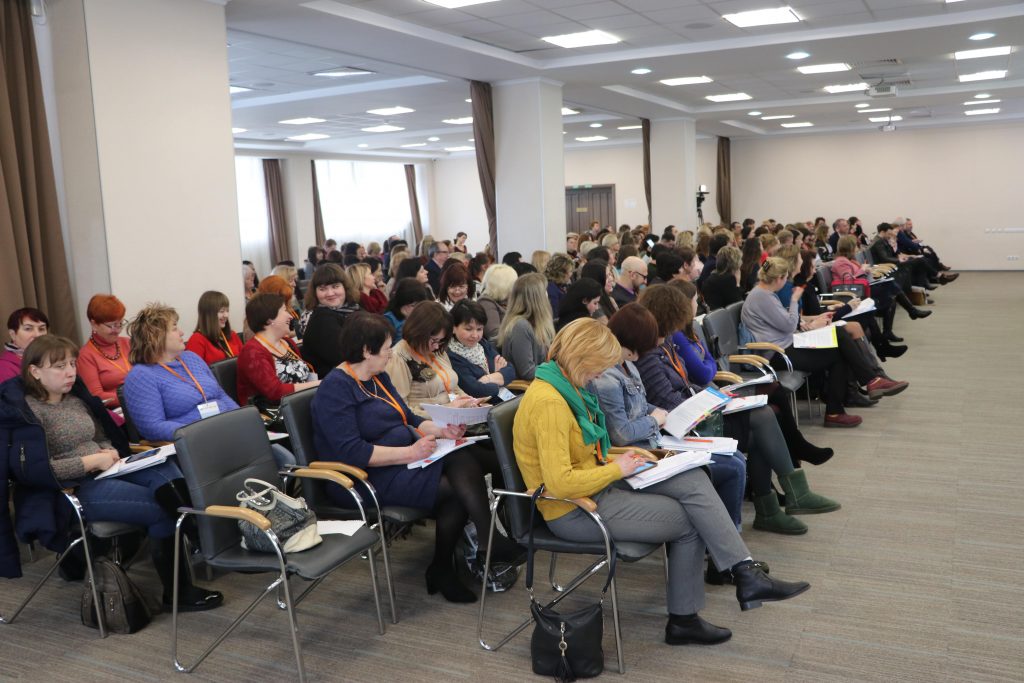
History of the event:
In 2011, the Academy of Ukrainian Press in partnership with the Ministry of Education and Science of Ukraine, with the support of the U-Media Internews Network and the International Renaissance Foundation, launched the First International Conference on Media Education and Media Literacy "Practical Media Literacy: International Experience and Ukrainian Prospects". Over the course of 7 years, the conference has made a way, similar to the way of media education in Ukrainian society: from pedagogical innovation to the vital skills of the individual. Subsequently, the circle of its participants expanded, encompassing not only media educators, but librarians, civil activists, scholars, media experts and journalists.
For 7 years 1186 participants have delivered 565 reports and workshops.
Categories of participants: employees of pre-school educational institutions, primary and secondary school teachers, CE managers, professors of regional institutes of postgradual pedagogical education and pedagogical universities, librarians, civil activists, non-school educational institutions, representatives of municipal institutions.
The conference has traditionally been supported by the U-Media Internews Network for six years. In different years joined the DW Akademie, the "Marta" Program of the Embassy of the Netherlands in Ukraine, the IREX and others. In 2019, the initiator of the event was the DW Akademie, which launched a large-scale media education training program for the adults in 2018.
